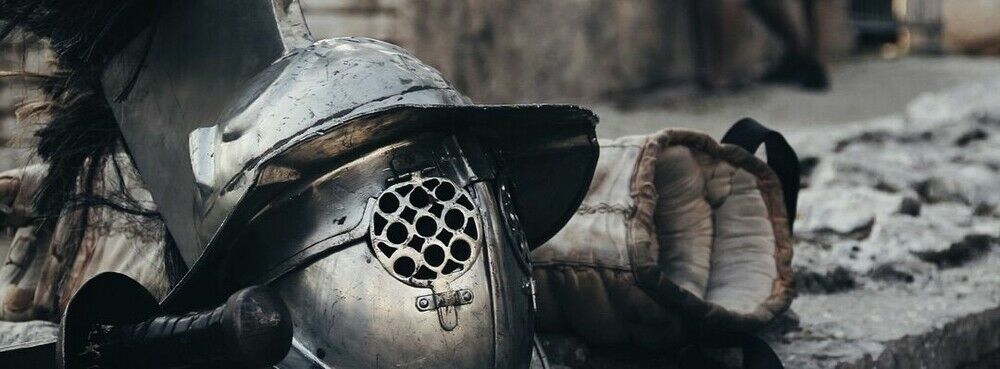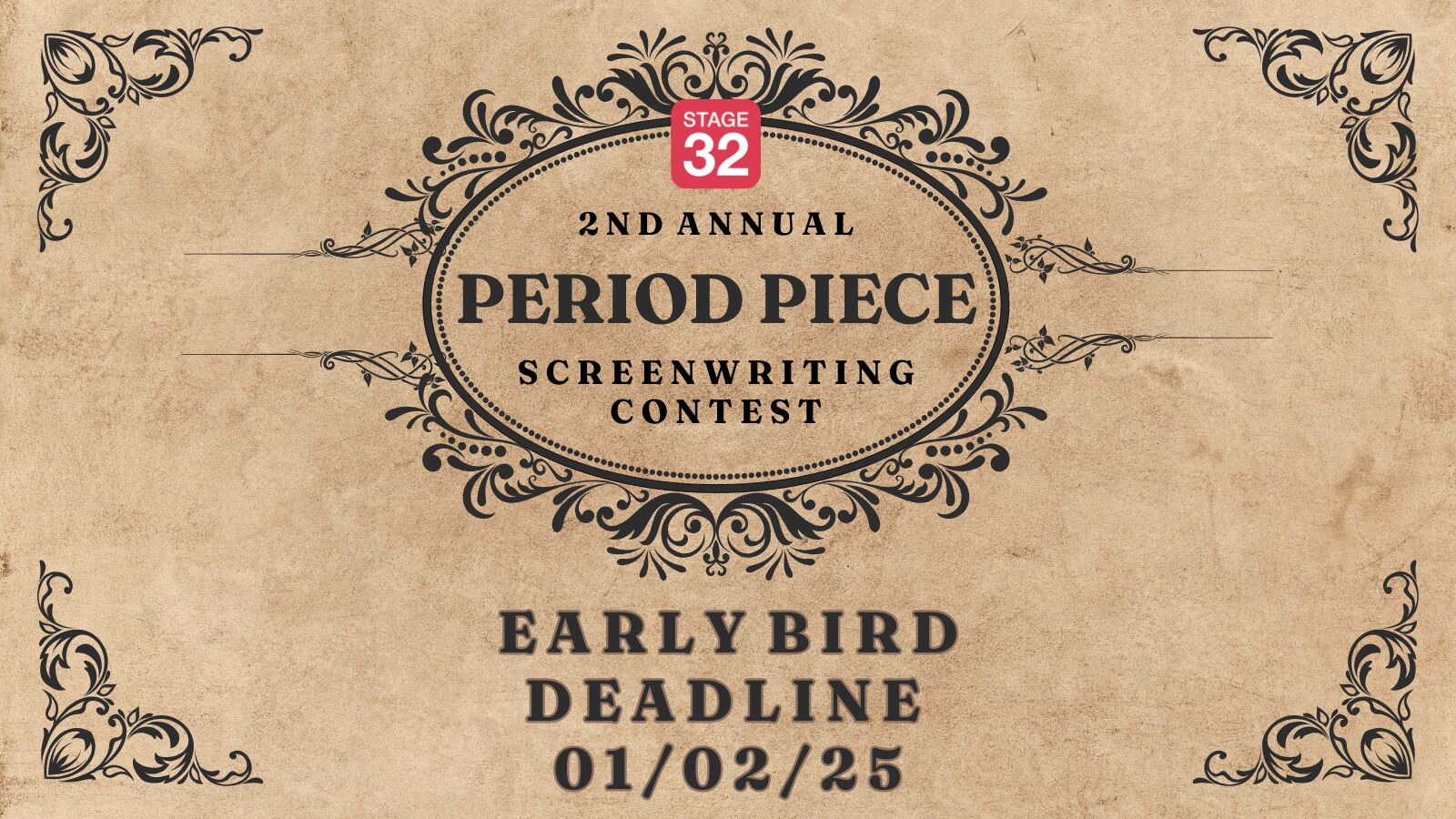
Question for everyone… How important to you is Historical Accuracy?
Depictions of historical events or figures in a screenplay may spark controversy with fans if they deviate from established historical records.
For example…
Braveheart” (1995): The film, depicting the life of William Wallace, takes significant creative liberties with historical facts, including the portrayal of kilts (not even worn at that time) and the character of Isabella (who was a child during the events depicted).
How important is historical accuracy to the Directors do you think? (I have to laugh on the inside with this one.)



4 people like this
For me, it is very important, but then I really enjoy studying history and portraying it as accurately as possible. My characters are usually fictional, but attire, architecture, weapons, conveyance, etc.
I suppose there must be some license, but I know it's irritating when I see something I know is wrong.
I did not watch Braveheart as the adverts disturbed me. I've read the history.
4 people like this
Mario, I'm with Marian...historical accuracy is highly important to me, too.
I love to study history and work to get it accurate in a script (after all, I feel we're going to repeat history if we don't learn from it)...and that's where research (be it in books, magazines, and newspapers or online) is key for me.
Thanks for raising the question...and here's wishing you all the VERY BEST!
5 people like this
As a writer, it's crucial, but in drama, there's also poetic license in regards to historic accuracy. I have a biopic period piece, The Old Master, that's set at the dawn of the 20th century(1890-1910). I did extensive research for over a year and a half, because accurate details are so important to me, as is back story, for you discover many facts and details that never show up in your script but that do, from your meticulous research, exist in your psyche, so in your head, you're living in that time, which inspires characters, plot, theme, dialogue, and scenes. By poetic license in regards to historical accuracy, 'in one sequence of the script, I condensed time for the sake of the story, but otherwise stayed true to facts.
4 people like this
The very moment a writer writes about a historical event in the script, it has got to be accurate.
4 people like this
Hakim Kisakye I agree.. as long as dramatize without losing historical essence.
4 people like this
In a doco, as much as possible. Everything else is a story.
3 people like this
I did extensive research for a 1940's project to be authentic & also found nuggets relating to objects, symbols, norms or laws that aided characterization and moved some plot points along. Usually I research. I do pitches so can't get it wrong but knowledge also gives me confidence. Regards big productions who make mistakes I feel they probably do it cos they can, will it affect their paycheck? Probably not. However as @Mario states, fans may question it, I agree, yet sometimes controversy sparks as many new eyes as fans who drop off. Saying goes no publicity's bad but I feel incorrectness lazy unless purposefully meant to be noticed to raise a question, turn a genre or expose bigotry etc.
3 people like this
Mario Leone I think historical accuracy is very important (I do A LOT of research for scripts), but writers shouldn't forget that this is the entertainment business. If I remember correctly, a writer I know got feedback once. Their script was accurate, but the reader was bored by the script. So, be accurate, but make sure your script is entertaining.
3 people like this
Maurice Vaughan
I agree we should always aim for entertaining. We should entertain with our script.
At the same token drama, deserves accuracy when it comes to history….
1 person likes this
Movies are life with the boring bits cut out.
You have to be prepared to change things to make the drama work. Combine characters. Change the order of events. Inflict theme upon the story. Have I seen movies that crossed a line for me? Yes. But you need to determine what the line is for yourself.
If you are doing comedy or biopic with a certain tone, you can actually break the fourth wall to address certain changes. Check out American Splendor, The Big Short, and A Futile and Stupid Gesture.
1 person likes this
I don't mean to offend anyone with my view. The statement below is my broader view of the topic. Historical Accuracy, a term often debated in our contemporary world, holds a profound significance when we delve into the depths of human history. In ancient times, where the tools for documenting events were scarce, the tales of our past were handed down through generations, embellished with the unique perspectives and interpretations of each storyteller. As time unfolded, the transition from oral narratives to paintings, then to written records, and eventually to the extensive use of paper marked the evolution of our historical documentation. Now, in the digital age, where every moment is meticulously recorded in the vast expanse of cyberspace, our thirst for accuracy has intensified. Yet, as we navigate this labyrinth of information, it's essential to consider the realm of cinema—a captivating reflection of society. Films, often a blend of imagination and authenticity, transport us to alternate dimensions, offering moments of pure enjoyment. In this cinematic voyage, the audience's concerns about historical accuracy often take a backseat to the immersive experience, where the line between fact and fiction blurs, leaving us spellbound. The world of cinema serves as a testament to the power of storytelling, reminding us that historical accuracy is not always the ultimate measure of a narrative's impact.
4 people like this
I wrote a post a few months ago looking at the trailer for Napoleon, where there are several historical inaccuracies, but this isn't necessarily a bad thing. Sometimes if a story uncompromisingly follows the history, the pacing of the storytelling suffers. In Lawrence of Arabia for example, T.E. Lawrence went back and forth into the desert several times, but it is depicted as only happening twice in the movie. The character of Sherif Ali played by Omar Sharif is actually representative of multiple tribal leaders that took part in the revolt, as having Lawrence meeting 20+ additional chiefs individually in the film would have been a huge detriment to the storytelling and audience experience (Chernobyl does something similar by having Emily Watson’s character representing a whole branch of the Soviet scientific community). The key thing is to remain honest to the greater "truth" of what you are trying to convey, rather than sticking to the brutal facts. Werner Herzog makes this distinction in his documentary work where editing and set-ups are there to convey the overall "truth" of the human condition of the subject to the audience.
2 people like this
I've just completed a historical drama. The script went through many rounds of development. I found two things most relevant to this discussion. 1) Just because something happened in real life does not mean it's believable in a dramatic context. Sometimes you have to invent (falsify) in order to seem 'true'. 2) When reporting true events, it's easy to forget the importance of character motivation. When you're inventing something, you ask yourself 'what would my character do next and why would they do that?' With true events you have to continually ask, 'I know my character did that, but why, why, why did they do it?' Because without this, we lose the subtext, and characters come out flat and mechanical.
2 people like this
We got two recent movies by two great filmmakers- Oppenheimer & Killers of the flower moon. Them filmmakers stand by their films, accept whatever criticism.
Tarantino made fun of Bruce Lee in Once Upon A Time...he didnt apologize.
3 people like this
The forefathers of this country decided they would record history the to their best advantage - and from their viewpoint, ignoring the plight of the Native Americans, the African slaves and the Chinese workers, etc. We are in the painful process of trying to figure out what really did happen. If we are sloppy with our attempt to portraying history for entertainment purposes only, we are creating more misinformation and exacerbating the problem.
2 people like this
Hi Mario, in my opinion it depends on two factors, it depends on several factors. As an author you can choose whether to be a historian (therefore dealing with a lot of research to improve the fidelity of your work) or you can take the historical period only at the concept level and create everything else from scratch (see Unglorious Bastards). It depends, good evening from Italy.
Ugo :)
2 people like this
If your story is engaging, don't sweat for accuracy... people got History channel for that...and yet we all know "common history" is only posed by the victors...
2 people like this
Mario Leone for me, I think if you are making a documentary, then yeah, it’s important but for a drama there has to be something that takes it beyond the predictable.
Like you said, Braveheart took a lot of artistic liberties, as did Das Boot. The latter more controversial, I if I remember it correctly, because of its twisting of the historical narrative.